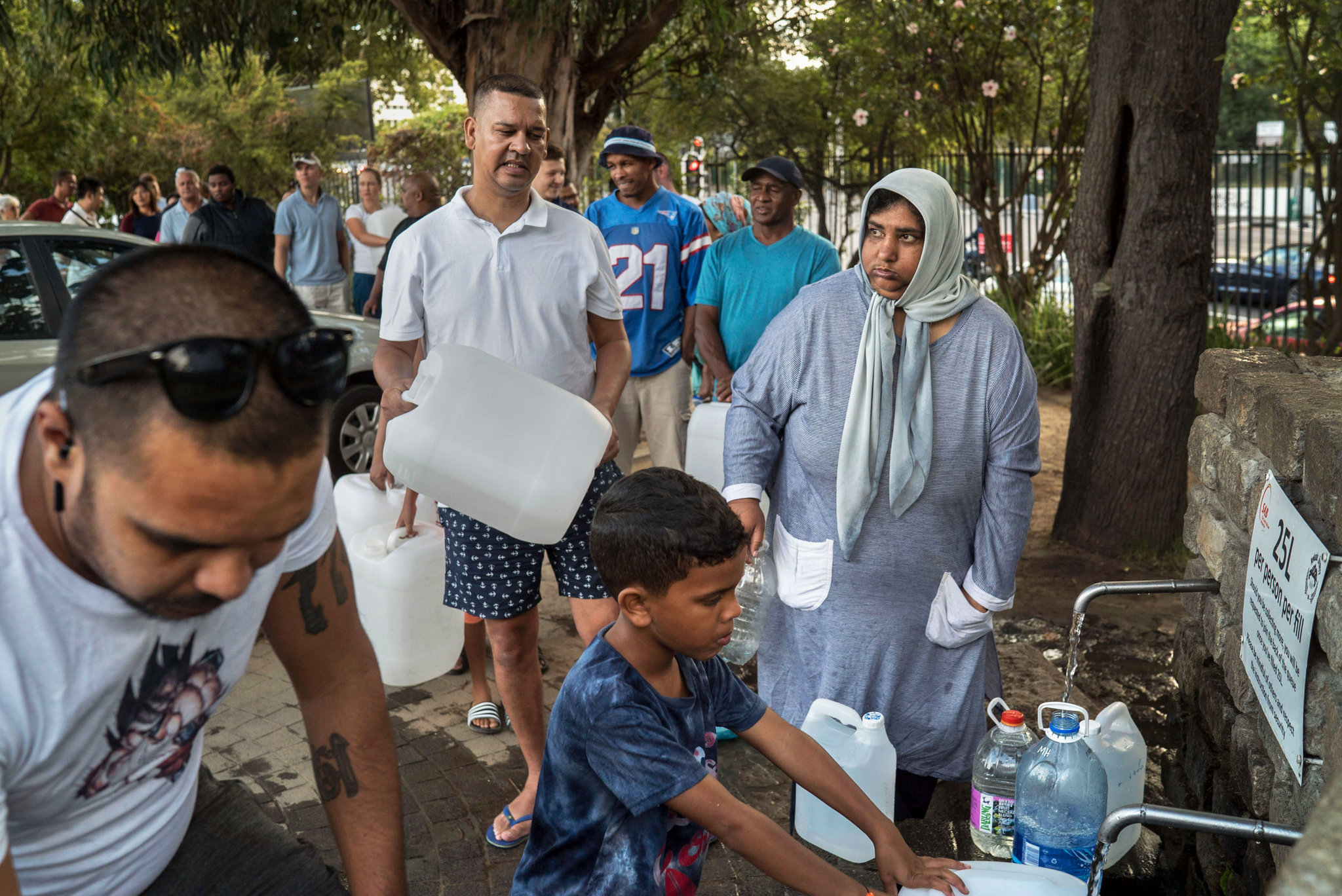
Navigating the Water Crisis: Cape Town and Kashmir Sound the Alarm for a Global Wake-Up Call
A Tale of Two Cities in Crisis
By: Javid Amin
As Cape Town grapples with the unprecedented declaration of being the world’s first water-less city, a looming water crisis in Kashmir adds another chapter to the urgent narrative of global water scarcity. Destiny has indeed pulled the trigger, prompting reflections on the shared fate of regions confronting the perils of water shortage. This article examines the water crisis in Cape Town and the emerging concerns in Kashmir, offering a comprehensive view of the impending global water scarcity challenge.
Cape Town’s Desperation: A Water-Less Reality
The picturesque capital city of South Africa, Cape Town, now stands as a stark symbol of water vulnerability. The city’s government, admitting its inability to supply water beyond April 14, 2023, has banned bathing, and preparations are underway to disconnect water connections for an astounding 10 lakh people. Evoking images of petrol queues in India, Cape Town residents will soon rely on water tankers, each offering a mere 25 liters of water. Law enforcement, including police and army personnel, stand ready to manage potential unrest.
The Global Water Crisis: Echoes from Kashmir
As Cape Town grapples with its water woes, Kashmir, a region known for its natural beauty, is facing its own impending water crisis. The water level in nearby dams has receded, and the underground water table has deepened. This emerging crisis demands attention not just as a regional concern but as a reflection of the broader global water challenge.
The Global Water Crisis: A Stark Reality
Globally, the situation is dire, with only 2.7% of the world’s water considered drinkable. This scarcity is a pressing concern that demands collective action. Instances like water being transported by rail to Latur in Maharashtra, India, are stark reminders of the gravity of the situation. The simultaneous water crises in Cape Town and Kashmir underscore the shared fate of regions grappling with water insecurity.
A Call to Action: Water Conservation Strategies for Every Citizen
- Rethink Daily Car/Bike Washes: Break the habit of washing your vehicle every day. This simple act can save significant amounts of water over time.
- Mindful Cleaning Practices: Whether it’s washing the courtyard, stairs, or floors, be judicious with water usage. Opt for alternatives that consume less water.
- Tap Management: Consciously manage taps. Avoid keeping them on continuously, especially when not in direct use. Every drop saved contributes to a sustainable water future.
- Adopt Water-Saving Measures: Embrace a range of water-saving strategies in daily life. These can include collecting rainwater, reusing greywater, and employing water-efficient appliances.
- Fix Leaks Promptly: A leaky tap might seem trivial, but the cumulative impact can be significant. Promptly fixing leaks at home contributes to water conservation efforts.
- Minimal Water for Trees: While trees need water, excessive irrigation is wasteful. Provide the necessary hydration, but avoid over-sprinkling water.
- Responsible Road Practices: Refrain from unnecessary road sprinkling. This may seem innocuous, but every measure counts in the face of a water crisis.
Addressing the Water Crisis in Kashmir: A To-Do List
- Monitoring Dam Levels: Establish robust monitoring systems to track dam levels. Early detection of decreasing water levels allows for proactive water management strategies.
- Community Awareness Campaigns: Launch community-wide campaigns to raise awareness about the impending water crisis. Educate residents about water-saving practices and the importance of responsible water consumption.
- Government Intervention: Implement stringent regulations to curb wasteful water practices. The government should take decisive steps to address the root causes of the water crisis and enforce sustainable water management policies.
- Investment in Water Infrastructure: Allocate resources for the development of water infrastructure, including the construction of reservoirs and water treatment plants. This long-term investment can contribute to water security.
- Encouraging Rainwater Harvesting: Promote rainwater harvesting initiatives at the individual and community levels. Harvested rainwater can serve as an alternative water source, particularly during periods of scarcity.
- Incentivizing Water-Saving Technologies: Introduce incentives for the adoption of water-saving technologies, such as efficient irrigation systems and water-conserving appliances. Encouraging the use of modern technologies can contribute to sustainable water usage.
- Community Collaboration: Foster collaboration between communities, local authorities, and environmental organizations. Engaging all stakeholders in the dialogue and decision-making processes can lead to more effective and inclusive water management strategies.
Bottom-Line: Uniting for a Water-Secure Future
The simultaneous water crises in Cape Town and Kashmir serve as a sobering reminder of the fragile state of our global water resources. As we navigate these challenges, individual actions and collective efforts become paramount. The fate of one region impacts us all, and the urgency to address water scarcity requires a united front.
By adopting water-saving practices, advocating for sustainable policies, and investing in water infrastructure, we can navigate towards a future where water is abundant, accessible, and a shared source of life for all. The destinies of Cape Town and Kashmir are intertwined with the destiny of our planet. Let their struggles be a catalyst for global awakening and concerted action in the face of the looming water crisis.

